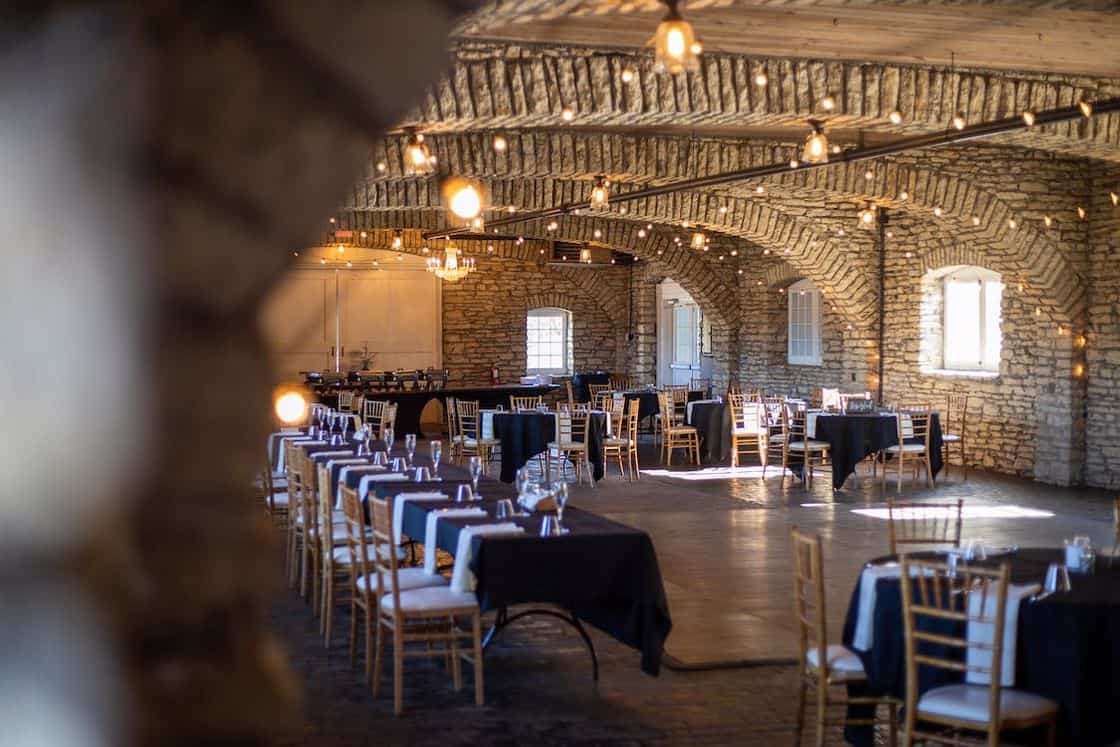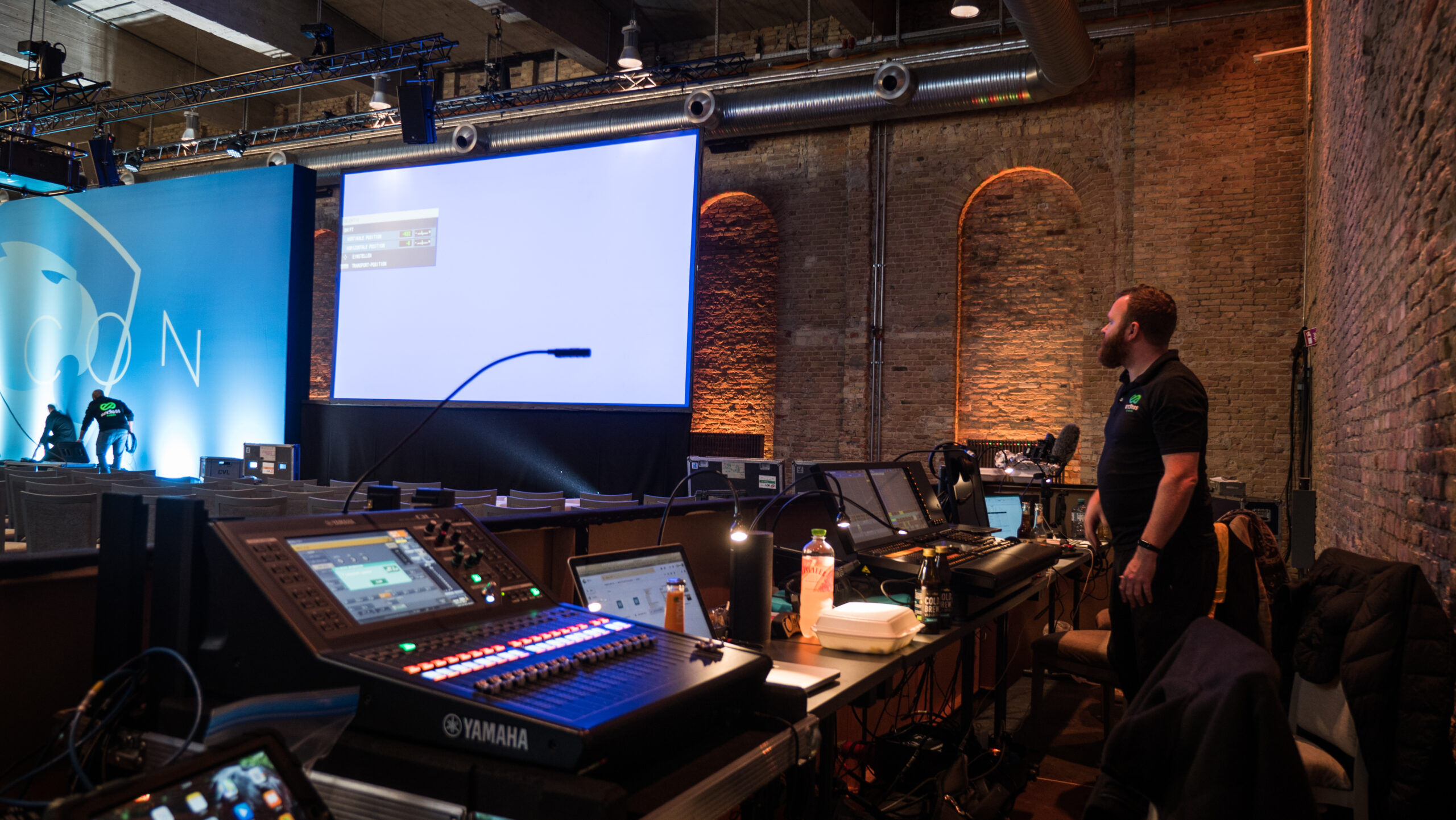Understanding Event Production: Why It Is Essential for Successful Celebrations
Event production plays a crucial function in forming successful celebrations. It involves mindful preparation, control, and execution to guarantee every information aligns with the event's vision. This procedure not just enhances guest experiences but likewise facilitates purposeful connections among individuals. Understanding the ins and outs of event production can significantly influence the overall result. What are the essential components that contribute to a successful event, and exactly how can they be properly managed?
The Function of Event Production in Creating Unforgettable Experiences
Although many aspects add to the success of an event, event production plays an essential function in crafting remarkable experiences. This multifaceted process includes various elements, including planning, logistics, and execution. Effective event production warranties that every detail aligns with the overall vision, creating a seamless flow that mesmerizes participants. By coordinating timelines, managing sources, and overseeing technological facets, event manufacturers establish a structure for impactful experiences.Moreover, they curate environments that resonate with the target audience, improving involvement and emotional link. From picking appropriate venues to integrating innovative modern technology, the options made throughout production greatly affect just how attendees perceive and remember the event. By prioritizing high quality and focus to detail, event production changes common celebrations into amazing moments, leaving enduring impacts. Inevitably, the skilled orchestration of these elements defines the significance of an event, showcasing the relevance of professional event production in achieving extraordinary outcomes.
Trick Parts of Effective Event Production
Efficient event production depends upon several key components that assure success. Planning and sychronisation establish a solid structure, while technological arrangement needs resolve logistical needs. In addition, carrying out target market engagement techniques improves the general experience, making the event unforgettable.
Preparation and Sychronisation
Planning and control serve as the backbone of effective event production, ensuring that every detail aligns seamlessly to develop a memorable experience. Reliable preparation entails developing a clear vision and purposes, while coordination entails the precise company of logistics, routines, and resources. A well-defined timeline is vital, leading all stakeholders with critical milestones and tasks. Communication plays a pivotal role, fostering partnership among employee, suppliers, and location team. Regular conferences and updates assist to attend to difficulties immediately, making certain that everyone remains straightened with the event goals. Ultimately, a structured method to preparation and control not just improves effectiveness yet likewise greatly contributes to the total success and satisfaction of the event for guests and coordinators alike.
Technical Configuration Requirements
A successful event depends greatly on its technical setup needs, which include essential components such as audio-visual devices, lights, hosting, and connection. Audio-visual devices includes microphones, audio speakers, and projectors, guaranteeing that presentations and performances are supplied plainly. Proper lights enhances the atmosphere and highlights key locations, while organizing provides the required platform for audio speakers and entertainers. Connection, consisting of Wi-Fi and electric accessibility, is essential for seamless interaction and modern technology assimilation. Each part needs to be thoroughly planned and carried out, customized to the event's details demands. Poor technological arrangements can lead to disturbances, adversely affecting the general experience for attendees, underscoring the relevance of extensive preparation and interest to detail in event production.
Target Market Interaction Techniques

The Importance of Planning and Sychronisation
Planning and coordination are essential to the success of any type of event production. Efficient timeline monitoring, source allowance strategies, and group interaction dynamics play necessary duties in making sure that all aspects collaborated effortlessly. Without a structured strategy to these facets, events risk encountering delays, budget plan overruns, and miscommunication amongst staff member.
Effective Timeline Monitoring


While successful event production commonly hinges on creative thinking and implementation, efficient timeline management remains an important aspect that can not be forgotten. A well-structured timeline acts as the foundation of any event, ensuring that each stage is performed in a prompt fashion. It permits the control of different jobs, from venue setup to visitor arrivals, while avoiding potential bottlenecks. By clearly outlining due dates and responsibilities, event organizers can keep emphasis and adapt to unforeseen obstacles. Furthermore, a meticulously crafted timeline promotes interaction amongst group members, promoting liability and collaboration. Eventually, efficient timeline management not just enhances operational effectiveness but also contributes considerably to the total success and smooth implementation of the event, leaving participants with an unforgettable experience.
Resource Allotment Strategies
Efficient source appropriation techniques are essential for the successful execution of any type of event. Proper planning allows event organizers to identify and disperse resources, such as financial resources, workers, and materials, in a manner that takes full advantage of effectiveness. By evaluating the certain needs of each facet of the event, coordinators can prioritize tasks and allot resources accordingly. Sychronisation among various divisions makes sure that all components, from catering to audiovisual needs, are appropriately supported. This tactical technique not just reduces waste yet additionally enhances the total experience for attendees. In addition, preparing for prospective obstacles and having backup strategies in location allows for smoother operations. Eventually, reliable resource allocation contributes considerably to achieving event purposes and ensuring an unforgettable event.
Team Communication Dynamics
Just how can smooth communication among employee transform the event production process? Effective interaction is vital for working with jobs, sharing updates, and attending to obstacles in real-time. When staff member take part in this content open dialogue, they can quickly determine potential issues and useful site develop options collaboratively, minimizing hold-ups and misconceptions. This dynamic fosters a cohesive atmosphere where everybody recognizes their duties and responsibilities, bring about a more integrated effort. Additionally, routine check-ins and feedback loops boost accountability and assurance alignment with the event's objectives. By prioritizing communication strategies, teams can streamline workflows, boost spirits, and ultimately elevate the total high quality of the event. Effective gatherings hinge on the ability to connect efficiently, making it an essential element of event production.
Enhancing Attendee Engagement With Innovative Style
Imaginative layout plays an important duty in enhancing attendee interaction at events, as it promotes an immersive environment that mesmerizes participants' attention. By incorporating cutting-edge visuals, interactive aspects, and thematic decoration, event organizers can produce remarkable experiences that reverberate with participants. Thoughtful design styles promote motion and exploration, motivating visitors to communicate with you could try these out display screens and each other.Incorporating technology, such as augmented reality or live ballot, more enriches the experience, permitting real-time comments and communication. Additionally, sensory elements like lighting, noise, and aroma can evoke emotions and produce a more interesting atmosphere.The use storytelling with design aids share the event's objective and message, making it a lot more relatable for attendees. Eventually, innovative style not only enhances interaction but likewise grows connections among individuals, leaving a long-term impact that prolongs past the event itself. This critical approach to layout is important for successful events.
Taking care of Logistics for a Smooth Execution
While the exhilaration of an event can draw participants in, taking care of logistics is vital to safeguard a smooth implementation. This entails carefully collaborating different components, from venue selection and design to event catering and transportation. Effective logistics monitoring ensures that all parts straighten, permitting a smooth circulation from registration to the verdict of the event.Additionally, a clear communication plan among all stakeholders is essential. This includes personnel, vendors, and volunteers, who should be informed of their roles and responsibilities. Preparing for prospective obstacles, such as equipment failing or unexpected climate condition, can further improve the event's success.Creating an in-depth timeline aids keep the team on course and allows for prompt modifications. Ultimately, well-managed logistics not just promote a delightful experience for guests yet also mirror the professionalism and reliability and reliability of the coordinators, adding to the overall success of the event.

The Effect of Technology on Event Production
What duty does innovation play fit modern event production? Modern technology has actually ended up being a foundation of reliable event production, improving both planning and execution processes. From sophisticated registration systems to interactive applications, modern technology improves attendee management and enhances interaction. Digital event platforms permit coordinators to get to broader target markets, damaging geographical barriers and promoting hybrid events that combine in-person and on-line experiences.Additionally, audiovisual technologies, such as high-definition screens and sound systems, raise the top quality of presentations and performances, making sure a memorable experience for participants - event production charlotte. Social media combination makes it possible for real-time responses and communication, promoting community involvement previously, throughout, and after the event. Moreover, information analytics tools help coordinators in checking participant behavior and preferences, making it possible for customized experiences that resonate with diverse audiences. Generally, the combination of technology in event production not just improves operational performance however also enriches attendee experiences, ultimately adding to the success of the event
Evaluating Success: Determining the Outcomes of Your Event
Success in event production depends upon reliable examination, which involves gauging a selection of outcomes to analyze the total impact of an event. To achieve this, organizers can use both qualitative and quantitative metrics. Measurable steps might consist of participation numbers, ticket sales, and earnings created, while qualitative evaluations may involve guest satisfaction studies and feedback forms.Additionally, analyzing social networks involvement and media coverage can offer insights into the event's reach and brand effect. Contrasting these metrics versus predefined objectives aids determine if the goals were met.Furthermore, post-event debriefs with the preparation team can discover lessons learned and locations for improvement. By methodically examining these outcomes, event manufacturers can enhance future celebrations, ensuring continual growth and success. Inevitably, a detailed assessment not just highlights accomplishments yet additionally educates critical choices for subsequent events, fostering a society of quality in event production.
Often Asked Inquiries
What Certifications Should an Occasion Manufacturer Have?
Event manufacturers should have strong organizational abilities, creative thinking, and reliable communication capabilities. A history in project monitoring, budgeting, and settlement is important. Pertinent certifications and experience in varied event types better improve their qualifications.
How Can I Minimize Event Production Expenses Properly?
To efficiently minimize event production expenses, one can simplify vendor option, work out contracts, use internal sources, focus on important aspects, apply modern technology for effectiveness, and check out sponsorship chances to balance out costs without endangering high quality.
What Are the Usual Obstacles in Event Production?
Typical difficulties in event production include budget plan constraints, logistical control, vendor management, time limitations, guest engagement, technological troubles, and unforeseen circumstances - event production charlotte. Each variable can substantially influence the total success and smooth implementation of the event
Just how Do I Pick the Right Venue for My Event?
Selecting the right location entails thinking about variables such as location, capability, facilities, and spending plan. In addition, evaluating access and setting assures the selected space straightens with the event's objectives and enhances the overall attendee experience.
What Is the Normal Timeline for Planning an Occasion?
The regular timeline for preparing an event differs, but normally includes stages such as idea growth, venue choice, vendor control, promotion, and final preparations, usually spanning several months to guarantee an effective implementation.